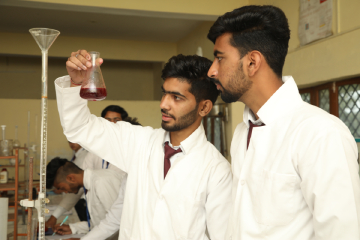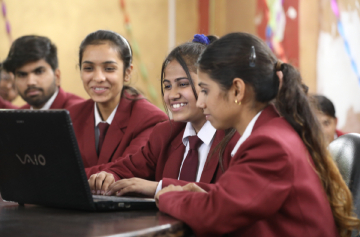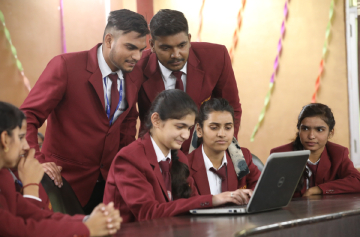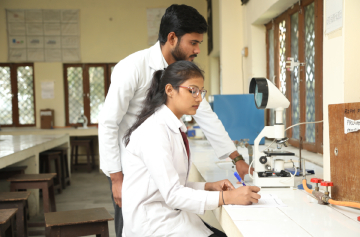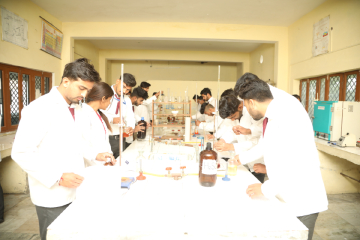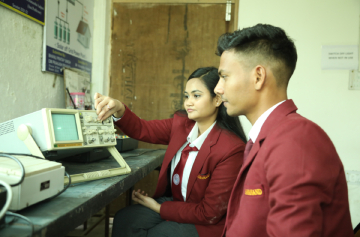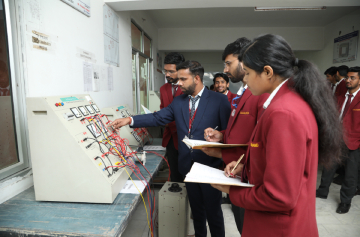Polytechnic (Electrical Engineering)
Electrical Engineering is a branch of engineering that studies about the production and uses of Electric power, its generation and distribution and the control of machines. The field first became an identifiable occupation in the late nineteenth century after commercialization of the electric telegraph and electrical power supply. It now covers a range of subtopics including power system, Power electronics, control systems, signal processing and Electrical Machines. All major companies of public and private sector such as Electricity Boards, Large Scale Industries, Manufacturing Plants, Power Corporations, Hydro-Electricity sector are continuously in need of Electrical Engineers for their projects. The main objective of this course is to groom the students in such a way so that they can act as supervisors in the above mentioned industries. A good industry exposure is provided by placement of students in different companies during vacations.
Vision:
To be recognized as innovative centre of education providing state of the art education.
Mission:
To create knowledge base of the students & foster their capacity.
To develop the skills as per future requirement of the industry and be adaptable to the changes.
Programme Educational Objectives (PEOs):
PEO 1- Cater the needs of Indian as well as multinational industries.
PEO 2- Being competent with sound technical background.
PEO 3- Analyzing situation & understanding industrial problems, analysis & find the viable & feasible solution.
PEO 4- Make a successful career in industry/manufacturing sector.
PEO 5- Go for higher studies.
PEO 6- Must follow the never-ending process of “learning” throughout the life.
PEO 7- Being competent & fluent to enhance the effectiveness of communication.
PEO 8- Always follow ethics of the profession with the skills.
Programme Outcomes (POs):
PO 1- Basic and Discipline specific knowledge: Apply knowledge of basic mathematics, science and engineering fundamentals and engineering specialization to solve the engineering problems.
PO 2- Problem analysis: Identify and analyse well-defined engineering problems using codified standard methods.
PO 3- Design/ development of solutions: Design solutions for well-defined technical problems and assist with the design of systems components or processes to meet specified needs.
PO 4- Engineering Tools, Experimentation and Testing: Apply modern engineering tools and appropriate technique to conduct standard tests and measurements.
PO 5- Engineering practices for society, sustainability and environment: Apply appropriate technology in context of society, sustainability, environment and ethical practices.
PO 6- Project Management: Use engineering management principles individually, as a team member or a leader to manage projects and effectively communicate about well-defined engineering activities.
PO 7- Life-long learning: Ability to analyse individual needs and engage in updating in the context of technological changes.
